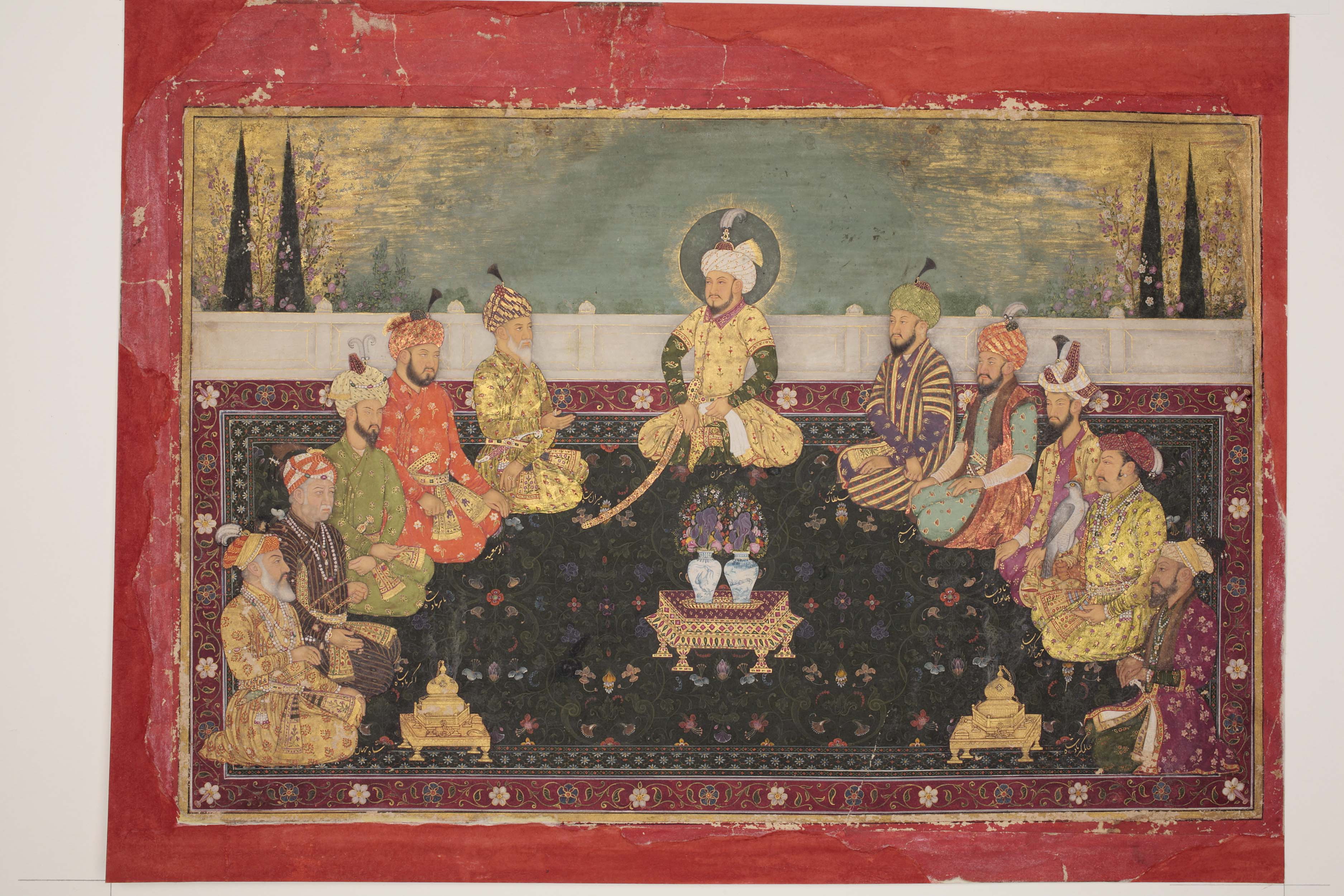|
House Of Babur
The Mughal dynasty ( fa, ; ''Dudmân-e Mughal'') comprised the members of the imperial House of Babur ( fa, ; ''Khāndān-e-Āl-e-Bābur''), also known as the Gurkanis ( fa, ; ''Gūrkāniyān''), who ruled the Mughal Empire from to 1857. The Mughals originated as a Central Asian branch of the Timurid dynasty, supplemented with extra Borjigin (the clan which ruled the Mongol Empire and its successor states) bloodlines. The dynasty's founder, Babur (born 1483), was a direct descendant of the Asian conqueror Timur (1336–1405) on his father's side and of Mongol emperor Genghis Khan (died 1227) on his mother's side, and Babur's ancestors had other affiliations with Genghisids through marriage and common ancestry. The term "Mughal" is itself a derivative form of " Mongol" in the Arabic and Persian languages: it emphasised the Mongol origins of the Mughal dynasty. During much of the Empire's history, the emperor functioned as the absolute head of state, head of governme ... [...More Info...] [...Related Items...] OR: [Wikipedia] [Google] [Baidu] |
Mughal Empire
The Mughal Empire was an early-modern empire that controlled much of South Asia between the 16th and 19th centuries. Quote: "Although the first two Timurid emperors and many of their noblemen were recent migrants to the subcontinent, the dynasty and the empire itself became indisputably Indian. The interests and futures of all concerned were in India, not in ancestral homelands in the Middle East or Central Asia. Furthermore, the Mughal empire emerged from the Indian historical experience. It was the end product of a millennium of Muslim conquest, colonization, and state-building in the Indian subcontinent." For some two hundred years, the empire stretched from the outer fringes of the Indus river basin in the west, northern Afghanistan in the northwest, and Kashmir in the north, to the highlands of present-day Assam and Bangladesh in the east, and the uplands of the Deccan Plateau in South India. Quote: "The realm so defined and governed was a vast territory of some , rang ... [...More Info...] [...Related Items...] OR: [Wikipedia] [Google] [Baidu] |
Babur
Babur ( fa, , lit= tiger, translit= Bābur; ; 14 February 148326 December 1530), born Mīrzā Zahīr ud-Dīn Muhammad, was the founder of the Mughal Empire in the Indian subcontinent. He was a descendant of Timur and Genghis Khan through his father and mother respectively.F. LehmannẒahīr-al-Dīn Moḥammad Bābor In Encyclopædia Iranica. Online Ed. December 1988 (updated August 2011). "Bābor, Ẓahīr-al-Dīn Moḥammad son of Umar Sheikh Mirza, (6 Moḥarram 886-6 Jomādā I 937/14 February 1483 – 26 December 1530), Timurid prince, military genius, and literary craftsman who escaped the bloody political arena of his Central Asian birthplace to found the Mughal Empire in India. His origin, milieu, training, and education were steeped in Muslim culture and so Bābor played significant role for the fostering of this culture by his descendants, the Mughals of India, and for the expansion of Islam in the Indian subcontinent, with brilliant literary, artistic, and histo ... [...More Info...] [...Related Items...] OR: [Wikipedia] [Google] [Baidu] |
Mongol Empire
The Mongol Empire of the 13th and 14th centuries was the largest contiguous land empire in history. Originating in present-day Mongolia in East Asia, the Mongol Empire at its height stretched from the Sea of Japan to parts of Eastern Europe, extending northward into parts of the Arctic; eastward and southward into parts of the Indian subcontinent, attempted invasions of Southeast Asia and conquered the Iranian Plateau; and westward as far as the Levant and the Carpathian Mountains. The Mongol Empire emerged from the unification of several nomadic tribes in the Mongol homeland under the leadership of Temüjin, known by the more famous title of Genghis Khan (–1227), whom a council proclaimed as the ruler of all Mongols in 1206. The empire grew rapidly under his rule and that of his descendants, who sent out invading armies in every direction. The vast transcontinental empire connected the East with the West, and the Pacific to the Mediterranean, in an enforced ''Pax Mongol ... [...More Info...] [...Related Items...] OR: [Wikipedia] [Google] [Baidu] |



